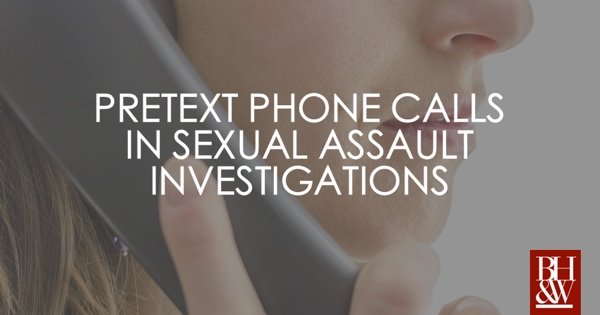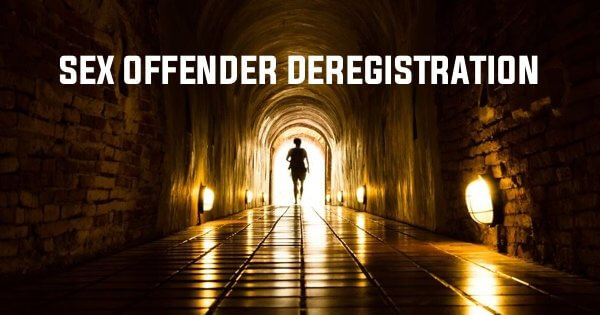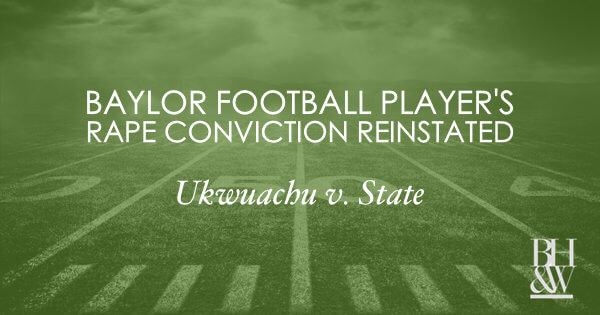The Right to Confrontation and the Outcry Witness
 Sanchez v. State – Recently released and designated for publication, the Texas Court of Criminal Appeals considered the admissibility of outcry statements by alleged child sexual assault victims.
Sanchez v. State – Recently released and designated for publication, the Texas Court of Criminal Appeals considered the admissibility of outcry statements by alleged child sexual assault victims.
In this case, appellant was charged with sexually abusing his step-daughter. The step-daughter had made an outcry statement to a witness who ultimately became unavailable. The outcry witness was available at a pretrial hearing and testified as to the extent of the outcry and as to the statement made to her. At trial, after the State discovered that the outcry witness was unavailable to testify, the prosecutors moved the court to read the testimony that was taken during the pre-trial hearing to the jury. Over defense objections, the trial court allowed the testimony to be read to the jury. Appellant was convicted on multiple counts of sexual assault, and received concurrent sentences of 28, 15, 7, 5, and 5 years for his convictions.
The defense’s primary objection at trial was that by allowing the prior testimony to be read to the jury, the court violated Sanchez’s Sixth Amendment right to confrontation.
Article 38.072 of the Code of Criminal Procedure allows a victim’s out-of-court statement made to an outcry witness to be read into evidence so long as that statement is a description of the offense and is offered into evidence by the first adult the complainant told of the offense. The problem with the case against appellant was that, while the hearsay of the victim’s statement to the outcry witness would have been admissible under 38.072 of the Texas Code of Criminal Procedure, reading the testimony of the unavailable outcry witness to the jury at trial was hearsay within hearsay. The Court noted that “in order to introduce testimonial hearsay over a Sixth Amendment objection, the State must show that the declarant who made the out-of-court statement is unavailable, and that the defendant had a prior opportunity to cross-examine that declarant.”
The Court boiled the case down even further by concluding that the ultimate issue in this case was whether appellant had an adequate opportunity to cross-examine the outcry witness at the Article 38.072 hearing. The Court stated that the only relevant question at an Article 38.072 hearing is whether, based on time, content, and circumstances of the outcry, the outcry is reliable. Because an Article 38.072 hearing does not provide an adequate opportunity to cross-examine an outcry witness’s credibility, the Court held that admitting the testimony from the pre-trial hearing to be read to the jury violated appellant’s Sixth Amendment right to confrontation. The court reversed the case and remanded it to the Court of Appeals for an analysis of harm caused by the unconstitutional admission of the outcry witnesses’ pre-trial testimony.
With this holding, the CCA sent a message to the State that it won’t be allowed to “backdoor” hearsay if the outcry witness becomes unavailable at trial.










